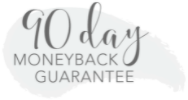How to Prevent Face Mask Acne (“Maskne”)

As face masks have become part of our regular wardrobe, so too have breakouts become a fact of life during the pandemic. In fact, acne breakouts attributed to mask-wearing have become so common that a term has even been coined to describe it: “maskne.”
But acne isn’t the only skin issue that can result from wearing a face mask. Many individuals are experiencing increased dryness, redness and even an exacerbation of their rosacea symptoms. So how can you protect your skin while ensuring your safety and that of those around you when you go out? Let’s walk through the facts so you can ensure face mask acne and other skin issues don’t stick with you until the day we can go mask-free.
How do face masks cause acne?
There are several potential factors that cause face masks to negatively impact your skin:
- Your mask is trapping moisture and natural skin oils and holding them close to your skin. All that moisture creates a humid environment that can change skin pH, thus changing its personality. Plus, the presence of increased oil within this humid environment can clog pores, leading to breakouts.
- Your face mask is a breeding ground for bacteria. If disposable masks are reused and reusable masks are not laundered, bacteria can build up in the mask. The humid environment of the mask creates ideal conditions for bacteria, including that responsible for acne, to proliferate.
- Your face mask is rubbing against your skin. Tight- or ill-fitting face masks can put pressure on the skin and/or rub against it, leading to “acne mechanica,” a type of acne caused by friction. This friction can also cause skin to become red and inflamed and, if the mask is so tight against the skin that it is absorbing beneficial skin oils, it can cause the skin to become dry.
- Your skin is reacting to detergents used on your reusable mask. When laundry detergents and fabric softeners that include fragrances, dyes and even synthetic surfactants are used on face masks, your skin can have an allergic reaction called “contact dermatitis.” Tell-tale signs of contact dermatitis include a red, itchy rash with raised bumps that can sometimes be confused for acne.
Given face masks’ tendency to instigate acne, it’s important that you take straightforward steps to protect your skin.
How to prevent face mask acne or “maskne:”
- Give your skin mask-free time. Stick to wearing your mask only when indoors. When outside and at least six feet away from others, remove your mask to give your skin a break.
- Choose the right fabric for your mask. Researchers have found that tightly woven cotton is the best fabric for face masks because it can filter out tiny aerosol particles while being breathable and minimizing humidity under the mask. Synthetic fabrics like polyester or nylon do the opposite. In addition, be sure that your mask fits properly. It shouldn’t be too loose or too tight.
- Avoid adjusting your mask and touching your face. By now we all know that touching our face puts us at risk of Covid-19 but because many of us still haven’t fully gotten used to the feeling of a mask on our face, we tend to regularly touch and adjust it. This is a no-no because our hands deposit bacteria and viruses that could not only make us sick but also could wreak havoc on our skin. Always wash your hands or use hand sanitizer before adjusting your mask and then clean your hands again after touching it.
- Avoid wearing makeup on the bottom half of your face. Not only does makeup mess up your mask, when it is applied to the area of your face that is covered by a mask it combines with humidity to potentially clog your pores. Besides, why waste product that no one sees anyway?!
- Launder your reusable mask with fragrance- and dye-free detergents. Proper mask hygiene is so important to protecting your skin and your health! Disposable masks should be worn just once, while reusable versions should be washed after every use. To avoid potential allergic reactions, wash your masks with hypoallergenic, “free” detergents.
- Implement the necessary skin care steps with properly formulated products. The goal of skin care during the time of mask usage is the same as always: protect your skin’s acid mantle - its barrier against the outside world, while ensuring pores stay clear and skin tissue is hydrated. To do that, use pH-balanced products that contain beneficial ingredients, like aloe vera, which calms skin inflammation. As for steps, skin should be properly washed morning and night with a gentle cleanser (consider an acne cleanser if you are dealing with active breakouts or are prone to them) and a hydrating moisturizer appropriate for your skin type should be used. (Not sure of your skin type? Take the Lexli skin care quiz.) Also beneficial is regular exfoliation to minimize the potential for dead skin cells to clog pores.
- Try to keep your stress level to a minimum. These strange times can make it hard to stay stress-free, but consider that stress is a contributing factor in the development of acne. (Learn about the four main direct causes of acne.) For the sake of your sanity and your skin, practice mindfulness exercises like meditation or yoga and find ways to take care of your own well-being each day. Need a little inspiration? Lexli offers a range of self-care tips and inspiration.
Recommended Reading: How to Minimize the Negative Effects of Hand Sanitizer Use
Photo by Polina Tankilevitch at Pexels


Interested in learning more? Download your free copy of the acne guide written by Lexli founder and lead product formulator, Dr. Ahmed Abdullah!
